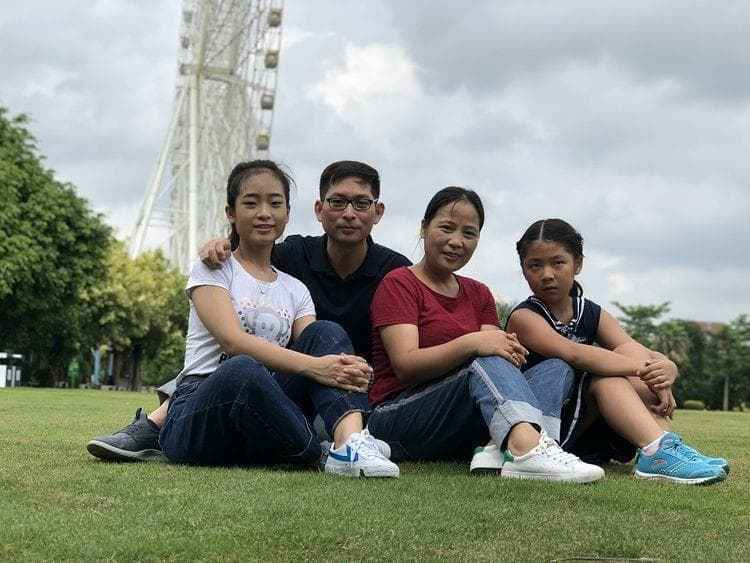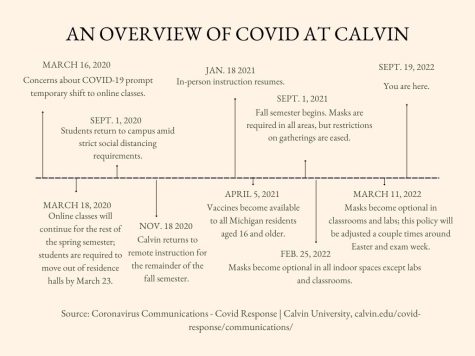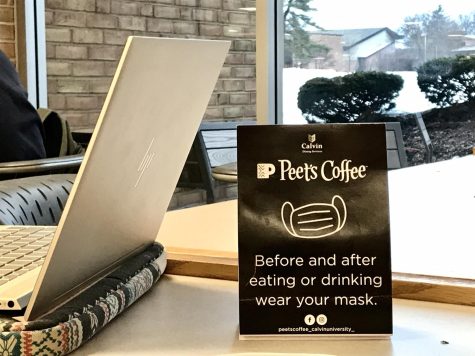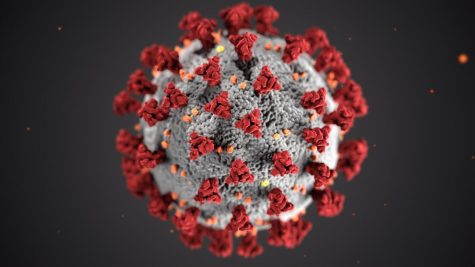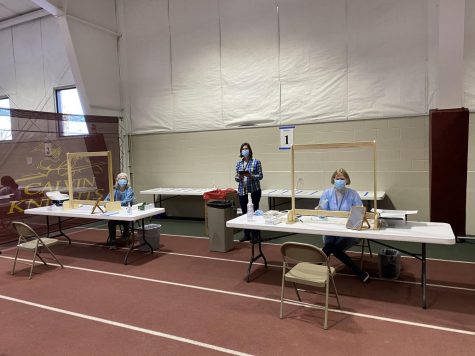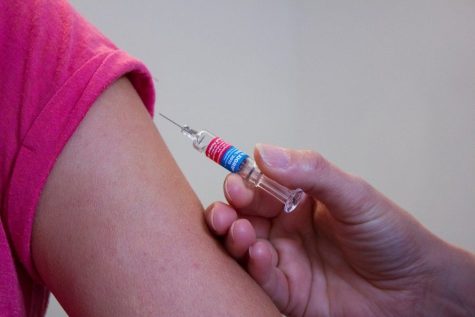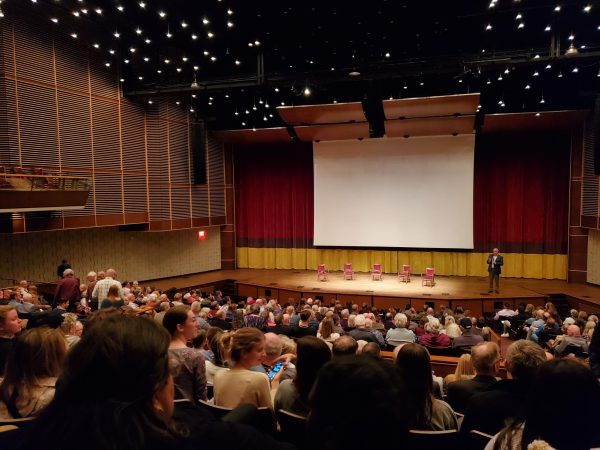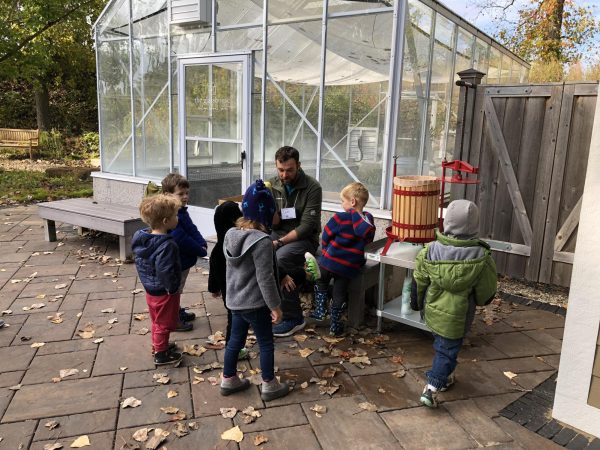Thanksgiving brings tough choices for some, no options for others
Evelyn Chen with her family the last time she saw them, more than a year ago.
This unique Thanksgiving season will be marked by smaller-than-usual gatherings, missing far-away family, and the occasional Tofurky sandwich.
COVID safety, in-state employment and family political tensions are all factors facing students who plan to return home.
Students are questioning how to limit their families’ exposure to COVID: should they quarantine for 14 days apart from family members? Should they attend Thanksgiving Day gatherings? Should they take advantage of the option to return home early?
Risky gatherings, impossible returns
Simply having been on campus, where case numbers are once again spiking, can be dangerous enough. For those who are able, travelling by bus, train or plane poses even greater risks to the homes they’re returning to. Many are planning to proceed with caution.
Sophomore Faith Hannah has concerns about her family’s plan to gather for the holiday. “With case numbers rising in almost every state it probably isn’t the best idea to get together with extended family for the holidays,” Hannah said, “but it’s also the only time of year that I see a lot of my family members, so it’s hard to know what to do in those situations, especially if masks aren’t going to be worn.”
Freshman Hailey Figueroa also said her family’s celebration would be reduced in size. “Since my family and I are from California,” Figueroa said, but they plan to “spend a few days exploring some cities in Michigan like Frankenmuth and Mackinac.”
Students with family members who are elderly, have underlying conditions or work in health care are even more cautious. Junior Bethany Williams said she won’t be visiting her grandmother over break due to COVID concerns.
For students who reside outside of Michigan, employment may have to be sacrificed, too. Calvin can only employ students who are currently residing in the state of Michigan, which means that students who travel out of state may not be able to keep their on-campus jobs through the end of the semester.
Heightened political stress
Once home for the holidays, students will be faced with post-election discourse—an already tricky feature made more stressful by an election year. Some students have reservations about speaking honestly; others lack those worries. “My family is all in the same boat,” said Bryce Bundens, a junior. “They will likely be joking and laughing at the previous year of nonsense in the government. It is easier to talk about politics when the past becomes removed from the present.”
“Discussions,” Bundens added, “will be hopeful and joyful, fervently awaiting the dawning of a new morning in America, rather than focusing on just the current political challenges and hardships.”
Williams, on the other hand, said she may talk politics with immediate family but hopes to avoid those conversations
with extended family.
“I have the chance to talk about things like policy issues with my immediate family often,” Williams explained, “so there is more understanding when things come up that we disagree about. Parts of my extended family live far enough away that we only see each other once a year. That, coupled with the fact that I know we have pretty divergent political views, makes me reluctant to bring up politics explicitly and I think the feeling is mutual.”
Closed borders
Although international students are less likely to debate the American presidential election, they face another slew of difficulties. Residence Halls close Nov. 25, and although there are waivers available to stay on campus over break, once students leave they cannot return until halls reopen on Jan. 5.
According to the CDC, South Korea, where the highest percentage of Calvin’s international student body is from, and Ghana, which comes in second, are both considered level 3 (high COVID-19 risk) countries and may require 14-day quarantines or negative COVID tests prior to entry.
Evelyn Chen and other students from China are facing closed borders. Chen, who hasn’t been home for more than a year, plans to petition to stay in her dorm through the spring semester. “I was quite upset at first,” she said of being unable to return home since the pandemic began, “but I think it was a better choice to stay in the US.”
Sophomore Caasi Tica, who is originally from the Philippines, hasn’t returned home since 2012. Her family returned to the Philippines more than a year ago.
Tica plans to stay on campus through Thanksgiving break due to COVID risks, possibly through Christmas as well. “Even though I have a sliver of hope to celebrate Christmas elsewhere,” she said, “I’m pretty sure I’ll end up here at Calvin.”
“My family celebrates Christmas like crazy,” Tica said, “I think Filipinos in general are just known to celebrate Christmas starting September. You’d hear fireworks pretty much every other day and we take
Christmas decorations seriously.”
Stranded on campus
Not every U.S. student gets to celebrate at home this year either; sophomore Marissa Waddell plans to stay on campus “because I have nowhere else to go.” She plans to spend Thanksgiving Day eating Tofurky sandwiches with her dog, Penny, and playing video games.
Senior Jo Newton said “finding alternative housing, or being able to stay on-campus is crucial” for people like them who don’t have a safe home to return to. “The house I grew up in is a place I no longer consider home,” Newton explained. “About a year and a half ago I made the painful decision not to go back anymore for my safety and well-being.”
But Jo won’t be alone this Thanksgiving thanks to their boss, Brian Goodman, technical director of the Calvin Theatre Company, who overheard a conversation Jo had with coworkers in which they revealed they have nowhere to go for Thanksgiving. He responded by volunteering his home. “I sent him a follow-up email asking if he would actually consider it,” Newton said, “and he told me that not only would he consider it, but he’d already talked it over with his family and they were all on board. It was very serendipitous.”



